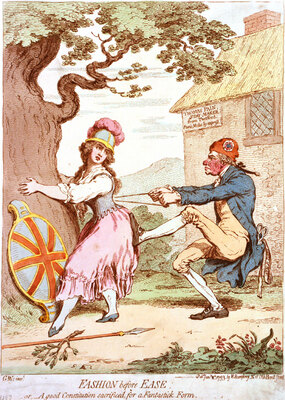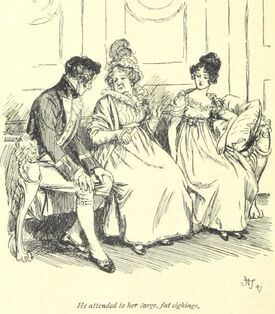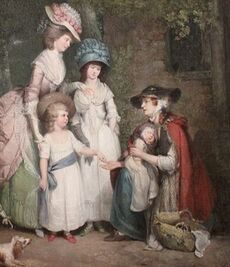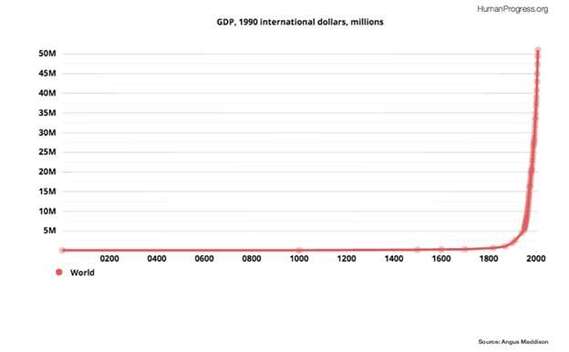| Clutching My Pearls is my ongoing blog series about my take on Jane Austen’s beliefs and ideas, as based on her novels. Click here for the first in the series. |

The main theme of Pride and Prejudice, Dr. Helena Kelly posits, is class warfare. It's the Jacobins versus Burke. This refers to an important conflict in English politics and society in reaction to the French Revolution which we'll refer to several times in this series.
At first, progressives in England greeted the French Revolution with excitement, hailing it as a new era in democracy, and one that they hoped would have an influence in reforming the United Kingdom. But when the Revolution was followed by the Terror, when innocent people were rounded up and guillotined, or set on rafts and drowned, there was a huge backlash in England. Government censors cracked down on radical writers like Thomas Paine.
In the cartoon at left, Paine is pulling the stays of Britannia. The joke is that Paine is destroying her constitution, a pun on the British constitution and the idea that wearing too-tight corsets was bad for women's health. Paine was originally a corset-maker by trade. He is wearing the red cap of liberty, a symbol of the revolution.
Dr. Kelly thinks Austen would have been on the Jacobin side of the debate, despite the fact that (as Kelly notes) her cousin's husband was executed on the guillotine. Kelly sees Austen's satirical portrayal of Lady Catherine as an argument for overthowing the entire class system. Why else, Kelly asks, would Austen use the name "de Bourgh" for Lady Catherine and "Darcy" for the hero? Why use French-sounding names "if you don't want to bring up what happened in France--the abandoning of titles, the confiscation of estates, the guillotining?" Well...








 RSS Feed
RSS Feed